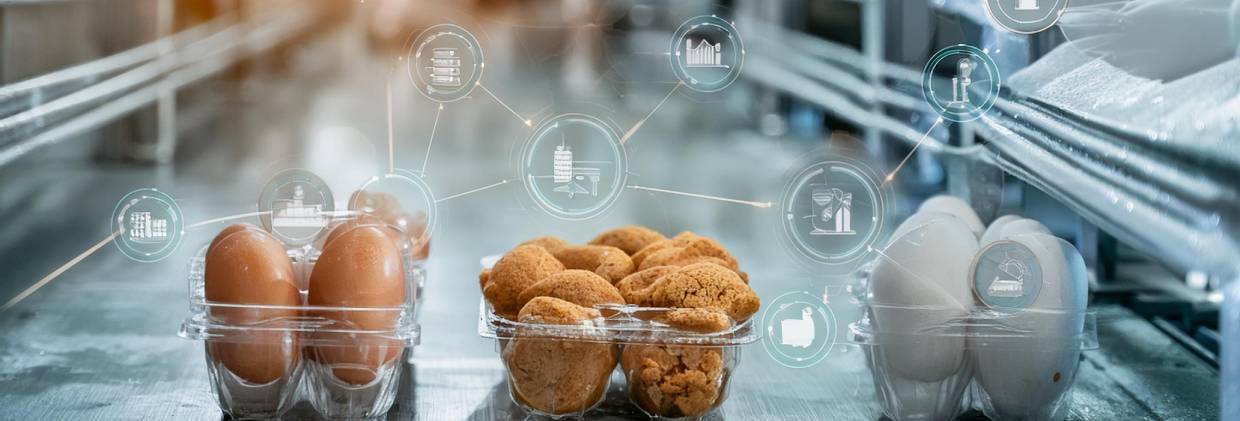When the European Union postponed its Deforestation Regulation (EUDR) implementation to December 2025, the collective sigh of relief through the food and beverage (F&B) industry was palpable.
Many manufacturers were facing a harsh reality: they simply could not verifiably trace every single element of their products, including cocoa, coffee, soy, palm oil and more, back to the plot of land where they originated – a core requirement of the regulation.
But while this reprieve has delayed EUDR implementation, it hasn’t stopped it. With the clock still ticking, it’s a critical opportunity to address a fundamental truth. Many European food manufacturers have been operating with complex global supply chains they cannot fully see, understand or trust.
The data disconnect holding Europe back
European F&B manufacturers are facing something of a paradox. Despite generating more raw data than ever before through complex global supply chains, they struggle to harness this information effectively.
And, therefore, they struggle to use it effectively. Despite a lot of technological progress, much of the industry remains trapped in email-based supplier communications, with 95% of suppliers still relying on this method according to research by TraceGains – or worse, the 4% still using fax machines. We can, and must, do better.
This fragmentation is not just inefficient; it’s becoming existentially problematic as regulations like EUDR, Corporate Sustainability Reporting Directive (CSRD) and Corporate Sustainability Due Diligence Directive (CSDDD) demand unprecedented levels of supply chain visibility. Manual processes are just too prone to human error, and in a tightly regulated market, errors attract big costs.
Brands now need to know not just what’s in their products, but where every single ingredient came from, under what conditions it was produced and its full end-to-end environmental impact. That is simply impossible with traditional and restrictive linear supply chain models.
For instance, when a European confectionery manufacturer needs to prove its cocoa hasn’t contributed to deforestation, or a plant-based food producer must verify the sustainability credentials of its probiotic functional ingredient, the limitations of disconnected, document-based supplier relationships become painfully apparent.
Breaking the linear chain
The solution lies not in incrementally improving current systems, but in fundamentally reimagining how supply chains can function. Progressive European manufacturers are transitioning from linear, document-based supplier relationships to networked, data-driven ecosystems.
In a networked model, the flow of information becomes as critical as the flow of goods. Suppliers and manufacturers connect through platforms that standardise and automate data exchange, creating a shared language for compliance, sustainability and quality. No ambiguity, no misinterpretation.
Many food manufacturers experiencing rapid scaling and expansion face significant quality control challenges. As they grow, the volume of certificates of analysis (COAs), suppliers, specifications and compliance documentation grows exponentially, creating labour-intensive processes vulnerable to human error. COA verification processes that are slow and manual at the best of times become unsustainable at scale.
This is where the TraceGains platform makes all the difference. Taking COAs as an example, by embracing new technology, brands can automatically compare COAs with specifications and alert teams when lots are off-spec.
The visibility provided enables manufacturers to manage risk proactively, make better-informed decisions about sourcing, formulation and new product development – ultimately delivering safer products to European consumers. Data collection becomes a strength, not a burden.

The innovation imperative
Speed to market has always been essential in F&B, but the stakes are rising. The TraceGains ‘2024 NPD Report: R&D Outlook for the Food and Beverage Industry’ showed that nearly 75% of food and beverage manufacturers plan to increase spending on new product development this year.
Yet the industry faces a puzzle: increased investment in innovation is shackled to frustratingly slow development cycles. According to Food Processing, 42% of companies still take nearly a year to move products from concept to shelf. One factor contributing to this is the time-consuming nature of ingredient sourcing, specification management and formulation when working with fragmented data. When R&D teams lack visibility into supplier capabilities or sustainable alternatives, innovation stalls.
Digital formulation tools are changing this equation. By using networked ingredient data, the TraceGains platform streamlines the formulation process through instant access to verified ingredient information and specifications. This eliminates lengthy manual searches and back-and-forth communications with suppliers that typically slow down development.
The TraceGains ecosystem simplifies formulation, which speeds up new product launches and helps brand owners and formulators react faster to changing market needs, all without compromising on safety and transparency. Manufacturers never again need to sacrifice provenance and authenticity for agility.
Knowledge is power, and with comprehensive data on suppliers, ingredients and compliance requirements readily available in one place, R&D teams can make faster, more informed decisions throughout the development process.
By digitalising and centralising the formulation workflow, brands can dramatically reduce the time spent on documentation, compliance checks and specification management. This creates more time for market-led innovation and ensures that regulatory and sustainability requirements are built into the process from the start, never an afterthought.
The European opportunity
With the world’s most demanding sustainability regulations, European manufacturers face both clear challenges and exciting opportunities. Those brands and formulation teams that embrace digital supply chain networks can turn regulatory compliance from a burden or obligation into a critical competitive advantage.
Take the EUDR requirements for geolocation tracking of commodities. For companies still managing supplier documentation manually, this represents a massive and daunting undertaking. But for those with networked supplier ecosystems, where sourcing data flows automatically, compliance becomes an extension of existing capabilities rather than a new mountain to climb.
This networked approach also addresses other uniquely European challenges, such as post-Brexit regulatory divergence. As UK businesses navigate dual compliance with both EU and UK food safety laws, digital platforms that can track requirements across jurisdictions become invaluable.
The transition is as much about mindset as about technology; European manufacturers must shift from seeing suppliers as vendors to viewing them as partners in a shared ecosystem.
Beyond compliance to competitive advantage
As regulatory pressures increase, European manufacturers have a choice to make – view digitalisation as a necessary cost of doing business, or embrace it as an opportunity to reimagine how they operate.
Those choosing the latter path are discovering that networked supply chains deliver benefits far beyond compliance. They enable faster innovation, more resilient operations, and the ability to meet evolving consumer demands for transparency and sustainability.
Key EUDR changes might be delayed, but by embracing digital supply chain networks now, European manufacturers can transform these challenges into unmissable catalysts for growth – creating a more transparent, sustainable, and innovative future for the F&B industry.
Author: Michelle Henry, European Sales Director at TraceGains


